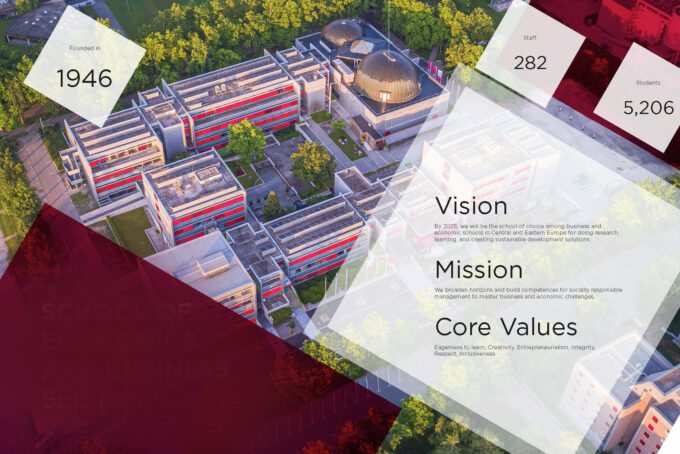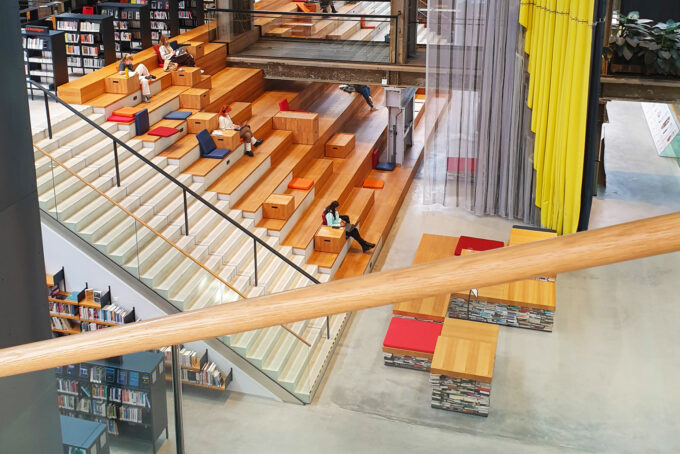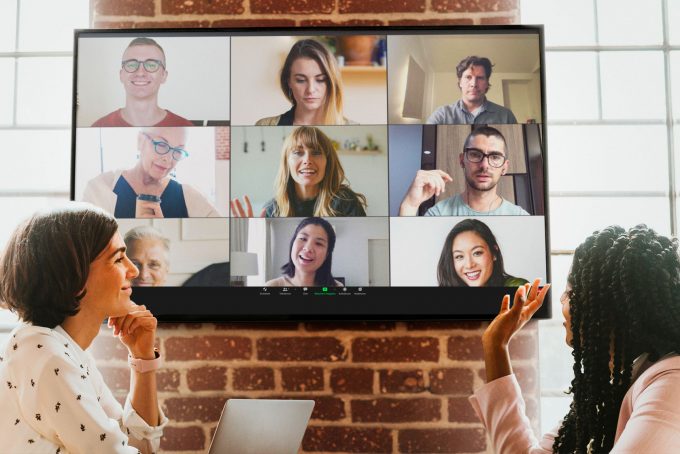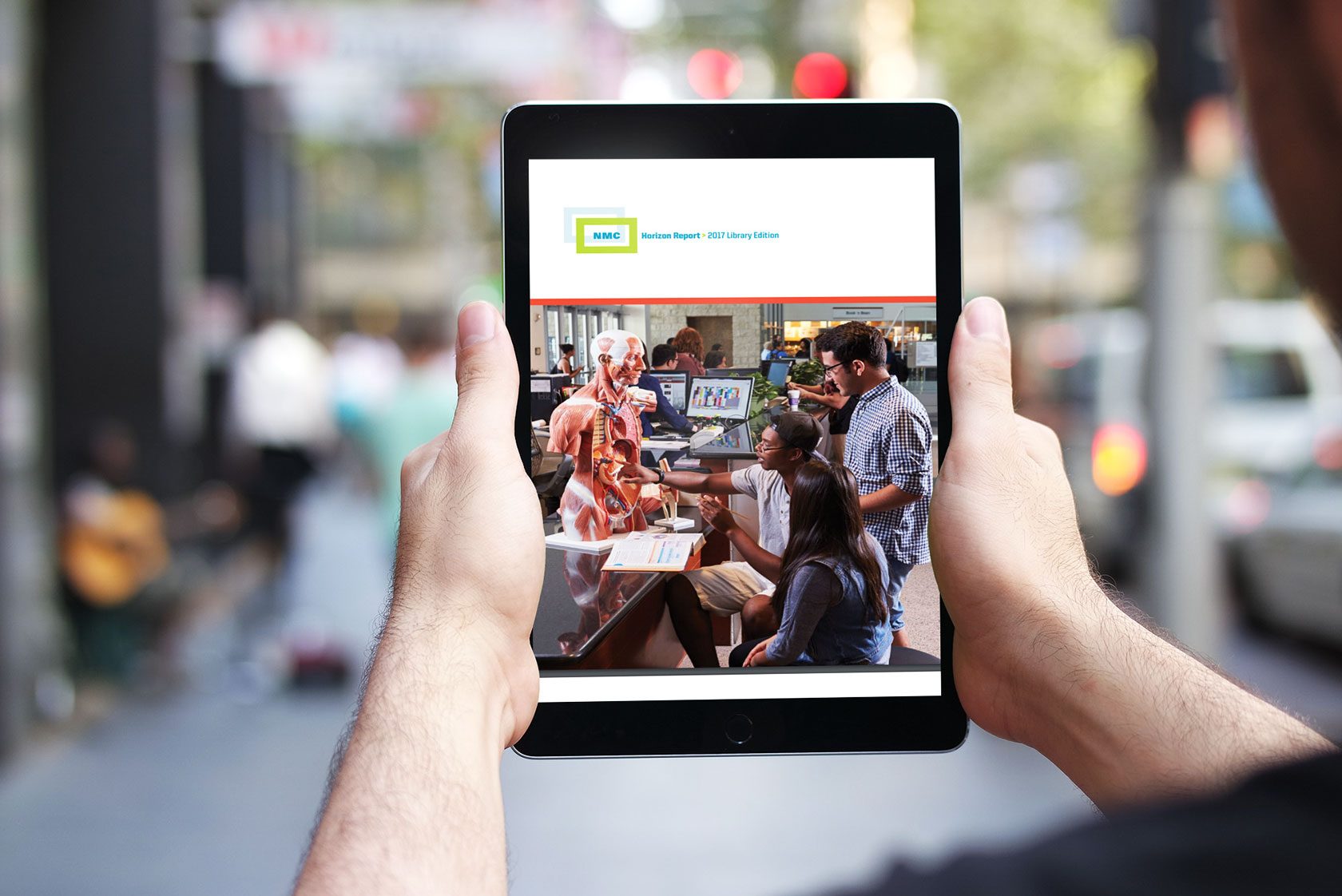
NMC Horizon Report 2017 Library Edition: Encouraging Digital Citizenship
The new NMC Horizon Library Edition outlines important trends, technologies and challenges for academic libraries at a glance. Which topics appear particularly interesting with regards to open science?
The NMC Horizon Report 2017 Library Edition was published on 23rd March. As in previous reports for academic libraries, it is divided into the following categories: important technological developments for libraries, trends as well as challenges, which speed up or hinder the adoption of new technologies in libraries. These are each assigned to six topics – with each being subdivided according to short, mid or long-term horizon or graded by level of difficulty.
Hot topics over time
The improvements to the report include an overview of the themes of the previous three issues of NMC Horizon Reports Library Edition from 2014, 2015 and now 2017. This makes it really easy to see at a glance how the topics have developed over time. It thus becomes clear that some – such as research data management – are perennial subjects. The report now also includes the “semi-finalist” themes that did not make it to the final round of 18 topics. The discussions of the 77 participating experts on these topics and the subjects of the report can be found in the Wiki which was introduced for creating the report and is still accessible.
Which topics appear particularly interesting with regards to open science?
Changes in practices, tools and the performance assessment of scientific output
Changes through digital research, altmetrics and open access resources represent a relevant trend for the long-term development of libraries. In conjunction with the technologically justified change in the way in which information is collected, reviewed and distributed, and with the switch from text-based material to digital, more dynamic formats, libraries are quickly becoming the central venues for the research work and results of their academic communities. In this way, they assume – albeit gradually bit by bit – elements making up the traditional roles of other providers, such as academic journals, a situation resulting in even more service and information demands in libraries. This includes promoting the supply of open data and supporting it.
Research data management still remains an important trending topic. In accordance with this, libraries must accommodate to new formats that originate from virtual reality technology and artificial intelligence.
The increased use of digital (social) media and tools for research transforms research processes, for example because of new collaborative elements. Academic libraries support researchers in the use of digital research tools. Examples of this include setting up digital scholarship centres on their campus, advisory services and application training.
Dealing with digital identities
Topics associated with increasing digital academic work are data protection and authentication, but also data tracks that individuals leave behind online. The topic of online identity and the support of personal branding is gaining in importance as a sub-topic of digital literacy, – also because it is becoming increasingly important to be able to apportion the research output of an individual every which way on the internet. Some libraries support this by publishing guidelines.
Digital citizenship and encouraging clients in the creation of content
According to the report, improving the digital citizenship of students and researchers constitutes a solvable challenge. The imparting of digital literacy in the course of this should not be restricted to individual, isolated technical skills, but should rather comprise conveying a deeper understanding of the digital environment. This understanding should allow people to become intuitively involved, while mutually creating content in new contexts and becoming more aware of the opportunities as well as the risks associated with digital work. The appropriate and responsible use of technologies thus becomes a matter for student services as well as for their own staff development.
The fact that libraries are increasingly re-thinking their use of space and are establishing, for example, makerspaces, media production studios and other areas for collaboration and active learning, reflects a greater shift in the educational approach. Practically oriented learning through users’ own activity (the creation of content and project results), rather than merely consuming content, is increasing. This development is typically expressed in the maker movement, crowdfunding projects or in video content produced by users. In this regard, it is hoped – or even expected of libraries – that they can support their users, who are themselves turning more and more into innovators. This also includes providing the important tools and thus expanding their traditional role as knowledge mediators and meeting points for academia and research.
Innovative services encourage internal change
Given the diverse challenges for libraries, such as the lack of resources and the growth in mobile use or changing customer demands, libraries must redefine their own role and create innovative services. As such, artificial intelligence, the Internet of Things and virtual assistants like Amazon Echo could make library services even more useful by personalising the user experience and catering for more efficient access to apposite resources.
In this regard, the skills needed by library staff are also changing. It is important for them to stay relevant with their own toolbox, and to receive support for their further development.
As a consequence of this, the report also highlights the need for libraries to adapt their own organisational structures so as to be able to offer innovative services and to respond in line with customer needs. For this reason, rigid hierarchies are no longer seen as effective, considering the large amount of information and ever-changing environment. Instead, a use of more agile, more flexible and other modern working practices is called for in order to reflect and support the changing roles and tasks of the library staff as well as the change in the workplace in general. The work in libraries should thus preferably correspond to the model of a learning community, and, in return, focus more on internal co-operation, interactions and openness as well as the use of interdisciplinary approaches to solving problems.
Additional sources:
Rudolf Mumenthaler; The Horizon Report 2017 Library Edition has been published! #NMCHz
View Comments
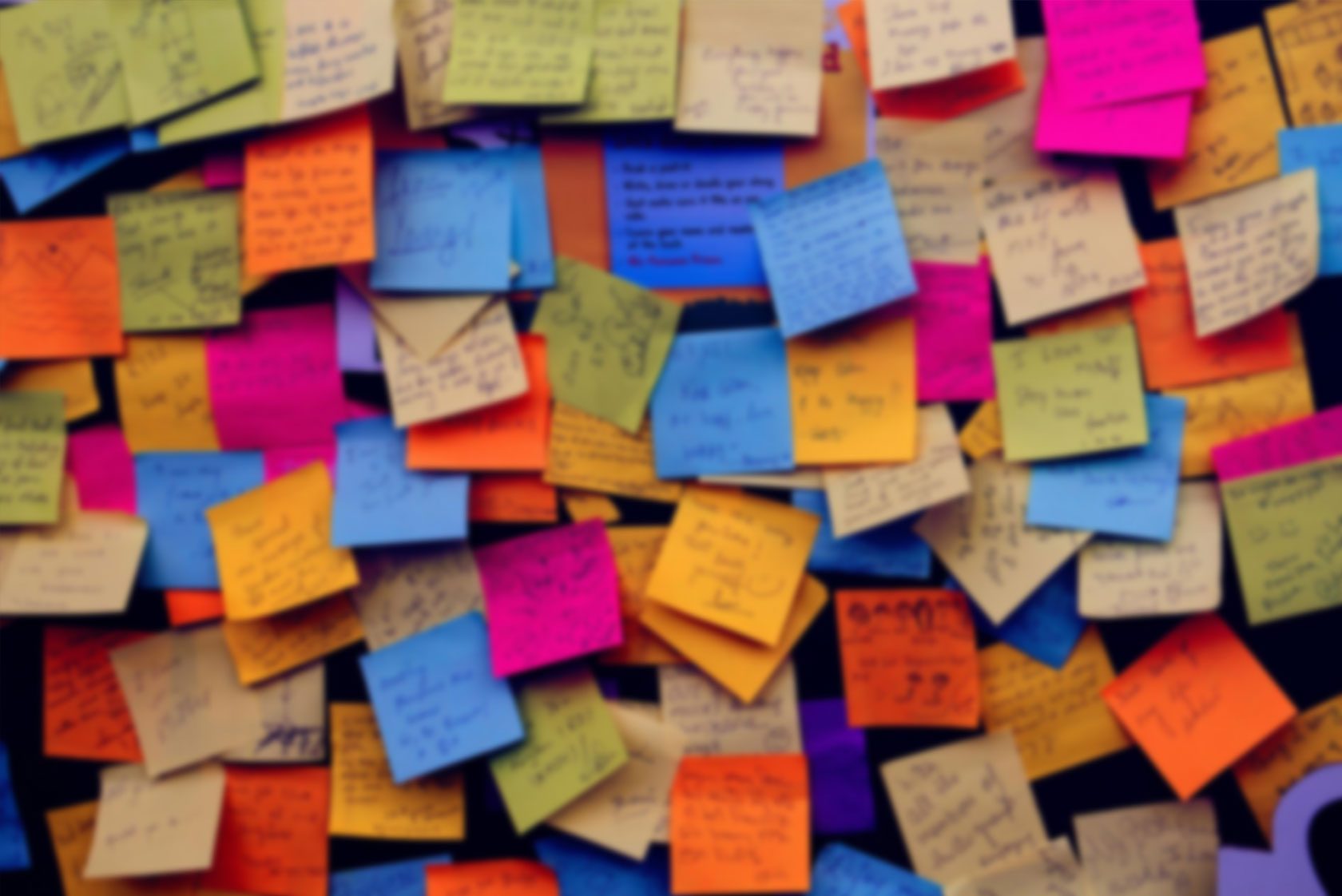
Open Science BarCamp: #oscibar 2017 – Putting Open Science Into Practice
How can open science practices become broadly established? What role can open...

